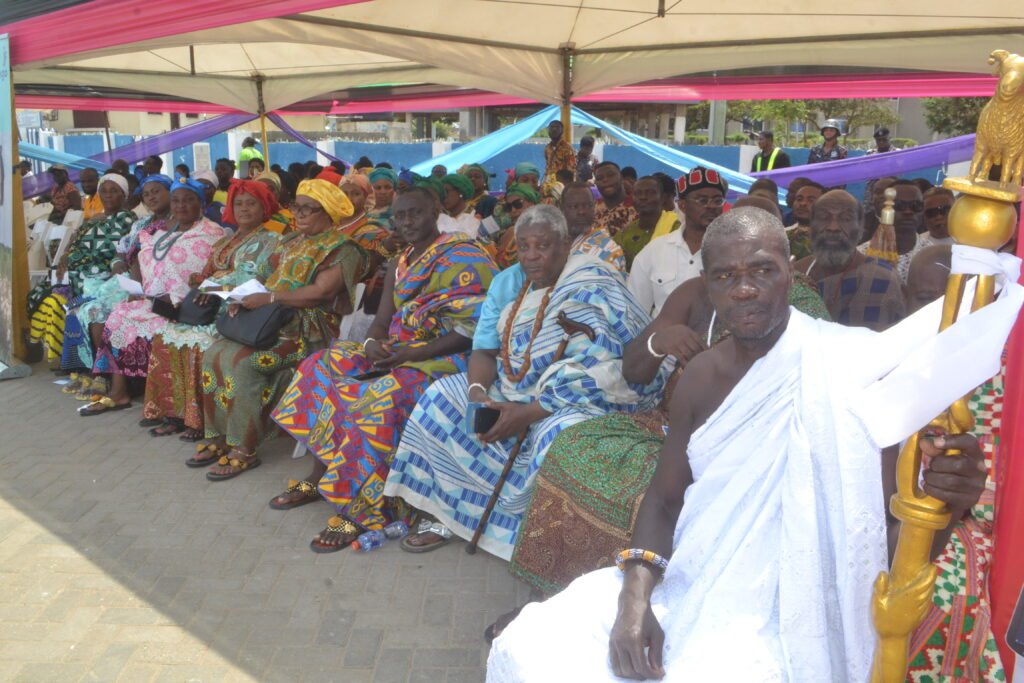
The first consignment of 20,000 kgs of fresh tilapia requested by NAFCO was delivered on schedule last week, despite Tropo having to overnight change its packaging to supply 20,000 individually packed bags to residents of Achimota and Kasoa.
Tropo Farms has its own logistics system, distributing fresh fish all over Ghana via its fleet of refrigerated trucks to sales outlets and agents under its Volta Catch brand.
Mr. Glisson Wilson, CEO of Tropo said “while our route-to-market guarantees the delivery of fresh fish nationwide in 25 kg bulk crates, the challenge with the request from NAFCO was to redesign our packaging at very short notice to supply 20,000 packed bags of three pieces of tilapia, on average 1 kg per bag, for distribution to residents”.
The fish were harvested from the lake, packaged and immediately transported in refrigerated vehicles directly to the distribution points.
According to the CEO, Tropo’s dedicated staff at the farm worked until 2.30am that morning to complete the packing of the freshly harvested fish in order to ensure that the product would be at the main distribution points by 7.00am last Friday, from whence staff of Tropo assisted NAFCO with smaller deliveries to 62 different locations around Kasoa and Achimota.
“Fortunately we very recently had to purchase two small 1.5 ton refrigerated vehicles to support our customers during the COVID-19 lockdown, which enabled our staff on the ground to quickly organise the smaller deliveries for the distribution of the 20,000 bags of fish to the residents” stated Mr. Glisson Wilson.
Mr. Hanan Abdul-Wahab, CEO of National Food Buffer Stock Company, said “supporting local food producers is an essential part of ensuring Ghana’s food security, and aquaculture plays a crucial role in supplying our nation with wholesome, affordable protein”.
He said Lake Volta, the largest manmade Lake in the world, creates ample scope for significant expansion of aquaculture, and hoped that Tropo and other producers would rise to this challenge.
Ghana annually imports over 350,000 metric tons of frozen fish to meet the demand as a result of the decline in Ghana’s ‘wild catch’ due to widespread poor fishing practices and environmental degradation. Experts believe that a significant quantity of the fish imported into Ghana is of questionable quality.
This, according to the experts, arises from the fact that the “cold chain” is not properly maintained during the long transit periods from the source country to Ghana and in many instances the imported fish are produced in polluted waters using low quality feed and excessive antibiotics and hormones. Ghanaian consumers can often not be confident of the wholesomeness of the imported fish.
Mr. Wilson maintains that “with its integrated hatcheries, nursery and marine cage capacity, Tropo Farms could in the space of 9 months, and with an appropriate capital injection, begin to increase production capacity from 10,000 tons per annum to 50,000 tons per annum. Tropo currently employs 756 employees and an increase in production would create additional employment opportunities for Ghanaians.”
He further added that “Tropo Farms stands ready at all times to contribute to national wellbeing when called upon.” Read Full Story




















Facebook
Twitter
Pinterest
Instagram
Google+
YouTube
LinkedIn
RSS